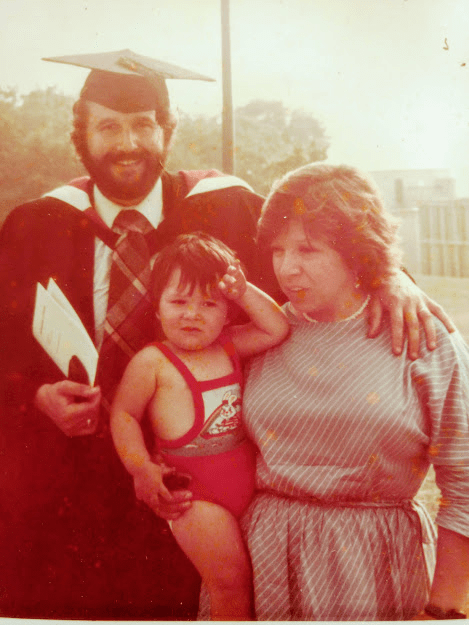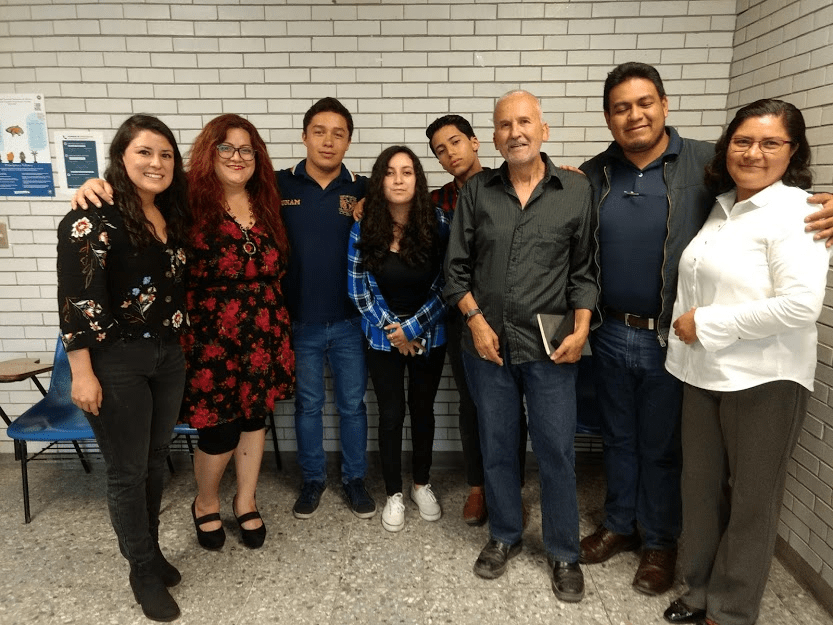Spotlight on...a career in journalism

We recently caught up with graduate Mike Rose. Mike spent many years working in journalism for the BBC having studied Latin American Studies, and shared a fascinating insight into his time at Essex and his exciting career.
Tell us a bit about yourself
I was at Essex for the best part of ten years and started my BA in Latin American Studies in 1978. Before I came to Essex I was in Latin America and spent a lot of time in Mexico, I'd already been in journalism for a few years, writing for news agencies and Mexico’s biggest English language newspaper. One day I met a British woman in a café, she told me that she was studying for a degree in Latin American Studies in the UK and I just thought it sounded so interesting. She really whetted my appetite for it. At that point I was newly engaged to my Mexican fiancée, I told her that I wanted to go back to the UK to study.
I did a bit of research and found that Essex was a great place to study it. I went on to study a BA and an MA. I also started a PhD, but unfortunately life took over and I wanted to focus on my family and my journalism career at that point. I worked for the BBC for (over) twenty years and we split our time between Mexico and the UK.
Why did you want to study Latin American Studies and what was your experience like?
I’d been working in journalism before coming to Essex and had specialised in Latin American news, but Essex provided me with the framework I needed to make better sense of the region, and international affairs in general. It was at Essex that I was taught a huge range of subjects by some wonderful people that influenced me greatly. Essex helped me think about things in a different way and provided an opportunity to polish up my Spanish and Portuguese. My lecturers had a profound impact on my career development.

Mike pictured with his wife and son on his graduation day in 1982.
Tell us about your career after Essex
I started off at the BBC World Service Monitoring service in Caversham as a Sub Editor and stayed there for about 20 years, working my way up to Duty Editor. I worked in the central news team, reviewing reports coming in and deciding what to broadcast. We were a small team working 24/7 on translated reports from all major languages, covering everything from everywhere, from China to the Soviet Union. When a big story came up in Latin America, I covered that thanks to my language skills. This was before the internet and social media was around, so we edited our stories and put our reports out on paper – it was really exciting, gruelling, of course, but fascinating.
What was a typical day like?
It was largely a desk job, but even as I progressed throughout my career into managerial roles, I was still a hands-on journalist, which was really important to me. We would receive information from all over the world which was translated into English and we’d need to assess and analyse what was worthwhile and what wasn’t. It was an avalanche of information coming in every day. Sometimes you’d be working on one really interesting story and another would come in, you’d have to decide which one to run with and which to drop. There were only a limited number of people to work on them, so it could be very busy.
What memories in particular stand out to you?
There are so many. One of the most memorable moments in my career was during the Tiananmen Square protests in China in 1989. There was unrest throughout the country, and I got a really dramatic report from a provincial radio early one morning, which I decided to put out. The next morning, when they delivered the newspapers, I saw it as the lead story on the front page of the Guardian! I couldn’t believe it. It was wonderful to see my work have such an impact. Essex really gave me the tools to analyse, assess things and put them in a framework. Before I joined Essex, I thought my writing was okay, but it was nowhere as informed as when I left.
I remember one dismal Sunday morning I was working and, at that time, managing a couple of novice journalists. One of them showed me a report which had just come in from Iranian sources about Saddam Hussein being caught, but she wasn’t sure we should do anything with it because the source couldn’t be verified. My heart rate went straight up. We spoke to the translator, who was similarly unsure, but although we couldn’t guarantee the source as it was a bit obscure, I knew we had to get it out. I rang up the main news editors at the BBC and said: “this is a really big one, and I can’t guarantee the source, but we can’t not run it.”. About half an hour later I watched the news break on CNN. That was incredibly exciting. We were the first people to get the story out internationally all from this one obscure source.
What advice would you give to someone who might be interested in joining the journalism industry?
Things are very, very different now but the opportunities are still there. My advice would be to apply yourself: get a degree, develop your communication skills, and expand your mind. That’s what Essex does, it’s what it did for me.

Mike Rose (BA Latin American Studies, 1981; MA Latin American Studies, 1983), pictured third from the right with a group of English students in Mexico.